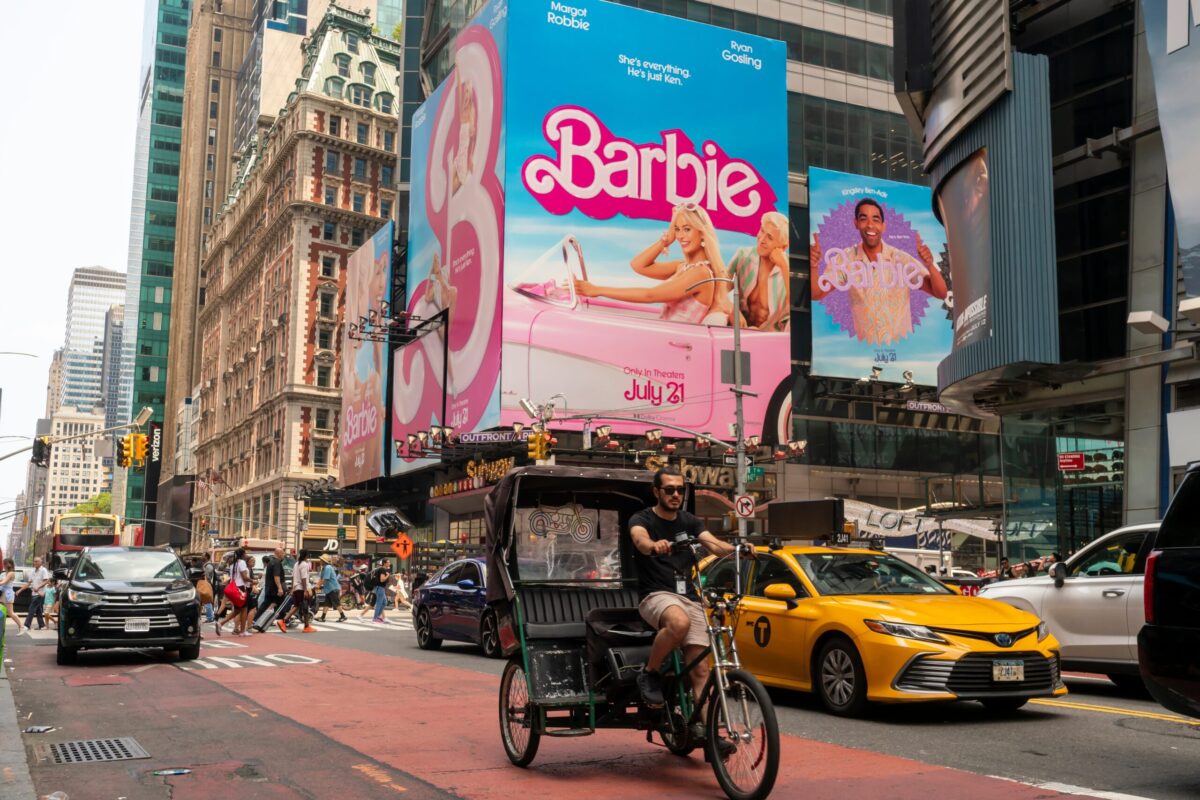By Alma Beltrán y Puga
Is Barbie feminist? Is Greta Gerwig’s script based on ideas of gender equality? The movie is certainly appreciated for promoting a global discussion on feminist ideas and gender roles. But answering these questions is complicated. Barbie opens in a version of a feminist utopia: a world where women are rulers and men servants. These inverted political gender roles are based on radical feminist theories that consider women’s liberation will only be possible when feminist values, such as care and dialogue, are taken seriously, and women in power embrace them. However, Barbie Land is a portrait of this feminist fantasy with too much pink and a very basic liberal idea of the State: civil and political rights are the fundamental rights of society.
But what about social justice, or, to put it in human rights terms, social, economic and cultural rights? A core insight of feminism is that gender is an axis of power that constitutes roles of superiority and subordination in society through economic arrangements, as well as access to civil and political freedoms. Isn’t access to health care and education as important as political representation? As we go about discovering what is outside Barbie Land (alias, the Real World), Stereotypical Barbie and Ken encounter gender-based discrimination and patriarchy. Ken learns what patriarchy is supposed to mean based on a book (probably written by a man) and Barbie’s traditional femininity is questioned by two young students in a high school. This is the most we get of social justice in the movie. Education confronting gender stereotypes.
However, in our real world, health matters. Beyond Barbie’s problems of cellulite and flat feet, sexual and reproductive rights, access to medicines, and equal treatment for people with disabilities, obesity, and other health problems seem never to be a central part of the movie. Of course, it is a Hollywood film and we shouldn’t expect a profound criticism of global health inequality in a movie based on dolls. But let’s think about it. Isn’t Mattel (alias, Capitalism) supposed to do something about it? Or the Kens or the Barbies? Or the Real Humans? Aren’t we supposed to be caring more about accessible and free of discrimination health services? What about treatment for prostate cancer and HIV? And access to vaccines? In 2023, can we really live in a reality where we do not discuss these important issues?
Women’s movements have historically been concerned with gender-based discrimination in health care, which includes, notably, our historic quest for reproductive justice — securing access to safe abortions as well as to dignified childbirth services and contraceptives. Access to contraception also includes men and their cultural resistance to using condoms. Unprotected sex is one of the main drivers of the transmission of sexually transmitted diseases and the cause of unwanted pregnancies. Women’s movements have also demanded better access to social security benefits, education, and equal labor rights.
So, in this context, is Barbie feminist? An answer to this first question is that it has a glimpse of feminist ideas regarding gender inequality, such as in the comedy of gender stereotypes about what is hegemonic masculinity and femininity, which still today makes us laugh. Though some argue that it critiques Capitalism, in some ways it seems a long commercial in favor of a (neo) liberal ordering of society and lacks a critique on what has caused historic gender disparities. In this sense, it falls short of accurately portraying the interrelation of gender, power, and the law. Since a young audience has been captivated by this Hollywood blockbuster, we should analyze the social discourses behind it and the ideas of rights depicted.
In short, we should thank Barbie for fostering a gender-equality conversation between generations. At the same time, after living in a global dystopia and trying to survive a pandemic, we should also have global health and social justice as central topics of those conversations.
